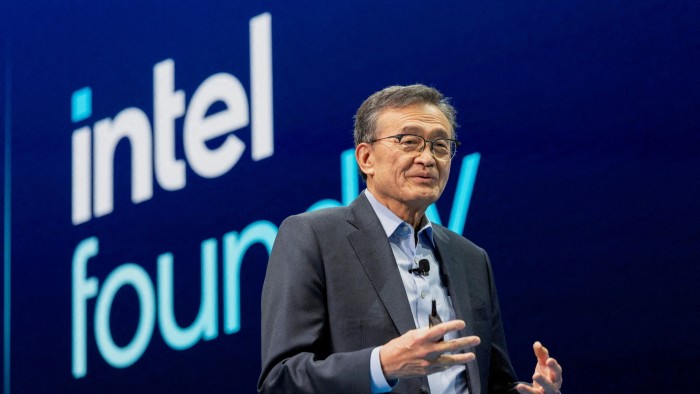Unlock the White House Watch newsletter for free
Your guide to what Trump’s second term means for Washington, business and the world
The White House on Tuesday said it was “ironing out the details” of a deal that would entail the US government taking a 10 per cent stake in struggling US chipmaker Intel.
Karoline Leavitt, the White House press secretary, on Tuesday said Howard Lutnick, US commerce secretary, was thrashing out the terms of the unusual arrangement, days after reports of the discussions caused a rally in Intel’s share price.
“As for this 10 per cent government stake deal, the Department of Commerce continues to work on it,” Leavitt said. “I know secretary Lutnick is working on it and ironing out the details, but the president wants to put America’s needs first, both from a national security and economic perspective.”
The Trump administration wants to boost the US’s capacity to build advanced chips. Intel’s manufacturing business has incurred billions of dollars in losses as it struggled to compete with Taiwan Semiconductor Manufacturing Company to make the most sophisticated chips.
Leavitt said the potential Intel stake was a “creative idea that has never been done before” and it would “ensure that we are both reshoring these critical supply chains while also gaining something out of it for the American taxpayer”.
Intel has declined to comment on the plan, which could involve converting billions of dollars in grants under the Joe Biden-era Chips Act into an equity stake for the US government.
Intel shares rose more than 7 per cent on Tuesday, following news that Japan’s SoftBank is investing $2bn in the company.
SoftBank chief executive Masayoshi Son has also discussed purchasing the company’s troubled manufacturing business outright with Intel chief executive Lip-Bu Tan, the Financial Times reported this week.
Intel is in line for grants totalling $7.9bn in direct manufacturing subsidies aimed at bolstering Intel’s manufacturing projects in Arizona, Ohio, New Mexico and Oregon. A separate $3bn Department of Defense subsidy programme, also under the Chips Act, was agreed earlier in 2024, bringing Intel’s total subsidies to about $10.9bn.
This would equate to roughly a 10 per cent stake in the tech company, which has struggled to compete with Taiwan’s TSMC in manufacturing the most advanced semiconductors for external clients.
Intel has received about $2.2bn of the Chips Act subsidies, which are disbursed based on companies hitting specific project milestones.
Lutnick earlier on Tuesday told CNBC that the US “should get the benefit of the bargain . . . that is exactly Donald Trump’s perspective, which is: ‘why are we giving a company worth $100bn this kind of money? What is in it for the American taxpayer?’”
The 10 per cent Intel stake would not give the US voting or governance rights, he said.
Lutnick emphasised the need to build US chip manufacturing capacity. “We cannot rely on Taiwan, which is 9,500 miles away from us and only 80 miles away from China,” he said.
Trump rounded on the Chips Act, passed with bipartisan support in 2022, early in his administration. A number of foreign chipmakers including TSMC, Samsung, SK Hynix and GlobalWafers have been approved for large grants, as well as US chipmakers such as Micron.
